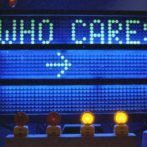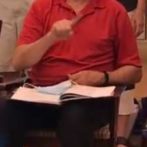Snapshots of Dementia: Choose Your Battles
(Photo by syklimkin on Unsplash) Choose your battles. It’s a familiar parenting principle—and one that works well for many aspects of life. Sometimes it takes a slight twist: Don’t sweat the small stuff. Look at the big picture. Don’t miss the forest for the trees. But however we say it, we mean to avoid turning small issues into big ones, which often happens when we argue or fuss. I’m not much of an arguer (Read: If there were an anti-confrontation vaccine, I’d be first in line.) But there was a time earlier in Tom’s dementia journey that, for some reason, I found it important to let him know when he was doing something I considered wrong or inappropriate. Part of that reason was that he had not yet been diagnosed. Although I suspected problems over a period of years, his first neurologist as well as a neuropsychologist told me he was fine. So when he did something that upset me or had odd, unusual behavior, I talked to him. Sometimes I corrected him. Sometimes I told him he was wrong. In reality, since he couldn’t control most of his actions or impulses, I was the one who was wrong. I thought my words would help Tom make some different decisions about what he said and did, but of course he couldn’t think logically anymore even if he remembered my comments. Today, armed with a new knowledge set as well as his dementia diagnosis, I approach these situations much differently. BEHAVIOR: Tom doesn’t answer me when I ask him a direct question. THEN: “When someone asks you a question, you should respond,” I remind him. “It’s how people know you’re listening to what they say.” NOW: I repeat my question after a few minutes or drop it altogether. Concentrating takes so much cognitive effort that he can’t focus on more than one thing. He genuinely does not hear me. And these days, he is less and less able to process enough information to give a response. I didn’t understand that then, but I do now. BEHAVIOR: Tom flirts with the female grocery store clerk, a practice I’ve asked him to stop. THEN: I don’t say anything to him at the store, but afterward, I tell him he has hurt me. I also spend time grieving over the state of my marriage. NOW: I either use the self-checkout line and let him “help” me with the groceries (our bags contain some rather interesting combinations) so we generally avoid such encounters. If we go through a regular line, I try to do most of the talking. If flirting happens, I ignore it (although if it ever became inappropriate, I would shut it down...
Read More








